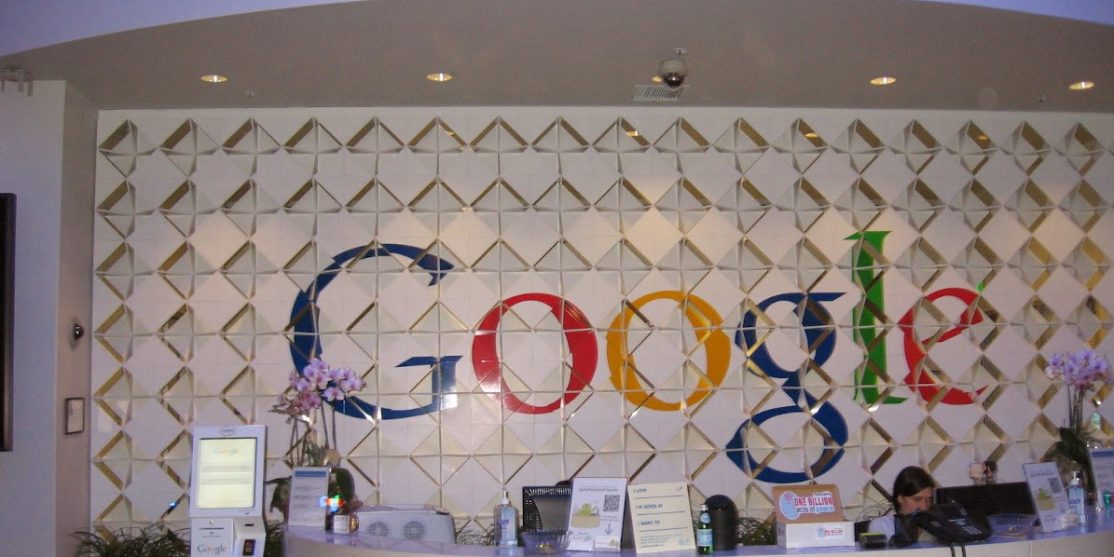approfondimenti

OPINIONI
No Tech For Apartheid: «Google’s leadership encourages the dehumanisation of Palestinians»
Interview to a Google software engineer on internal activism to oppose contracts providing Israel cloud technology. In the background, the wider issue of syndicalization in the tech world
In his essay within Emancipatory Social Science (Orthotes, 2020), Franco Bifo Berardi speaking about the systemic and ecological crisis, concludes by highlighting two situations to which to look in order to glimpse an alternative to the catastrophe: the first is the “children’s crusade,” that is, that chain of ecological movements that have sprung from the radical sensibility of the very young, and the other is the possibility possessed by the knowledge workers who innervate the fabric of cognitive and technical production: «But these 100 million cognitive workers — scattered in research centers, in experimental laboratories, in universities, in hospitals — may at some point, and probably by contact with the children’s crusade, realize that they possess the power to dismantle the machine they themselves have been forced to build».
One example of organizing this workforce, born out of the urgency of responding to the Palestinian issue, is No Tech For Apartheid, a call of more than 1,000 Amazon and Google employees that started in 2021 to oppose Project Nimbus, a $1.2 billion contract signed by the hi-tech giants to provide cloud technology to the Israeli government. By doing business with apartheid, they write on their site, «Amazon and Google are facilitating the surveillance of the Palestinian people and simplifying the process of forced exodus from their lands».
Since then, the portal has collected nearly 88 thousand signatures to a letter addressed to the companies’ respective CEOs. The letter also refers to protests held by workers in front of offices in New York, San Francisco, Durham and Seattle. Following Oct. 7, as they report on an article on the Medium platform, the corporate climate on the Palestinian issue has become heated. «Google’s leadership», it reads, «encourages dehumanization and racism toward Palestinians on official work platforms, on which comments have appeared comparing Gaza residents to “animals”». Again, Arab and Muslim employees have been asked inappropriate questions and inquiries about their possible sympathies toward Hamas, just for expressing solidarity with the Palestinian people. «The Google executive has a double standard when it comes to the freedom of expression of Israeli googlers versus Arab and Muslim googlers».
To elaborate on the latest updates and understand more, I put a few questions toCheyne, software engineer at Google and activist of No Tech for Apartheid.
1. Hi Cheyne, how is the activity of No Tech for Apartheid going on and what has changed since last October 7th?
I joined No Tech for Apartheid about a year ago, so I can only speak to what I’ve seen since then. There was definitely a massive shift after Oct. 7. There’s naturally been a lot more attention on the issue. For workers who already supported dropping Project Nimbus, it’s become a higher priority than ever before. Many folks reprioritized to get more actively engaged, and people have been dedicating much more time as well. I’ve also met many workers who have felt spurred to get involved with organizing for the first time. Unfortunately, there seems to be more push-back as well.
2. What forms of struggle have you put up in recent years or recent months toward the direction of the companies? We’re talking about companies with locations all over the World, so also with employees who are subject to different legislations also regarding labor. In addition to the online petition, how do you move in the workplaces?
The international nature of tech companies is both a blessing and a curse for organizing. On the one hand, it’s easy for us to connect with others who share our concerns across the world, and build global networks. On the other hand, the stifling of anything “political”, and the disengaged culture of tech workers makes it extremely difficult to form a local presence. We primarily engage with other workers through information sessions, 1-on-1 conversations, and small meetups. Listservs are also a good way to engage.However, the corporations control all communication channels to some extent or another. Conversation can easily be shut down if designated as too disruptive or distracting. Sometimes we have to get creative. A great example at Google is Memegen, the meme-based internal social network. It’s quite common to see complaints of all kinds raised there, and neigh impossible to shut down conversation if it goes viral. We’ve also sometimes hosted external events near offices, sometimes right outside on the sidewalk, where the company doesn’t have jurisdiction to shut it down.
3. You have repeatedly denounced the sharpening of the work environment in recent months and the instrumental use of anti-Semitism that is also being made against Arab workers. Would you like to tell us something from your esperiences? Recently how is this situation evolving?
I’ve definitely noticed different standards. Several of us distributed a petition through internal listservs. One person got sent to HR over it, but the rest of us didn’t. That person happened to be the only Arab person among us. There’s a clear disparity in the moderation standards being applied to memes on the internal social media site, Memegen. There were efforts made to block charitable donations for humanitarian aid to Gaza, which fortunately, did not succeed. Several workers, including myself, have been called out by name for organizing against Project Nimbus in the official Jewish ERG’s mailing list. Just this last week, we did lunches in multiple offices to share information about our organizing. Several people experienced harassment and doxxing. Someone took pictures of the group I was with, and they got posted to Twitter along with insults. Someone in another group was targeted by name. We aren’t intimidated though. This is protected, concerted activity, and we intend to continue speaking up.

Image from Wikicommons
4. The war and the Nimbus project certainly represented an urgent need for global organizing and involvement of tech workers around a hot topic. As a result of your initiative, have other issues also emerged that you have addressed? For example, working conditions, or ecological implications in the context of the tech sector?
We’ve always held that workers should have a say in how their work is used, so we also see this as a working conditions issue. Some might ask, why don’t you work somewhere else? I’d say, because then there’d be one less person speaking up at this company. And regardless, there are similar problems across the industry. Jobs are also becoming less secure, especially now as we’re seeing rolling layoffs across the tech industry. Some people are on visa, and risk deportation. We’re paid well yes, but many of us are supporting friends and/or family as the economy flounders for everyone but the ultra rich. I’ve met several members of Amazon Employees for Climate Justice, which I’m happy to say recently endorsed No Tech for Apartheid. In my opinion, the siege of Gaza is a perfect example of why environmentalism without justice is insufficient. I also met Maren Costa, one of the co-founders of AECJ, who is now organizing against Vanguard, which has over $300 billion invested in fossil fuels. Google is their largest corporate client.The list goes on.
Gig workers are exploited to train AI models. Amazon warehouses have terrible working conditions, and are transforming communities into polluted company towns. US weapons are tested on Palestinians, and US police train with Israeli soldiers through programs like GILEE. All these issues are connected, and all of them are touched, in one way or another, by the tech sector.
5. No Tech For Apartheid, as well as other international tracks such as Tech Workers Coalition, are trying to aggregate and create community in a labor sector where it is often difficult to organize cohesion for various reasons: individual isolation for remote work, high propensity for job hopping then difficulty in creating solid relationships among colleagues, or even a work environment that tends to tell itself as pacified. From your experiences, what do you think might be forms of pseudo-syndicalization in the tech world, capable of bringing out contrasts and forms of opposition to dominant production models?
It’s incredibly difficult to organize in the tech industry. The biggest barrier is culture. Most tech workers are content to keep their heads down and ignore any problem that doesn’t immediately impact them. They shy away from anything that feels too “political”. They rarely take the time to think about how their work is being used. Many who do engage over-intellectualize, and never end up taking any tangible action. All that said, there are also many advantages to organizing in tech. Tech workers are often granted more autonomy than most blue-collar workers. Higher pay offers stability, allowing many of us to take greater risks. We’re also often in close proximity to the business class, giving us a vector of influence that’s rarely available in labor organizing spaces. Plus, we often work remotely with people in a variety of locations, so it’s easy for us to form networks across the world.
The Alphabet Workers Union is affiliated with the Communication Workers of America, which was founded in 1947. In 2020, CWA launched the Campaign to Organize Digital Employees, so I’d say organization across the industry is not only possible, but already established and growing.
But I also think there’s great value in other types of organizing spaces. Campaigns like No Tech for Apartheid and collectives like Tech Workers Coalition offer focus and flexibility that isn’t always possible in a union setting. And since membership isn’t mutually exclusive (I, for example, am a member of both AWU and No Tech for Apartheid), people can bridge gaps between these spaces for mutual benefit.
Front page image from Wikicommons
